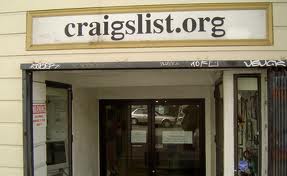Are You an Entrepreneur

Are You an Entrepreneur?
I was asked a question by a reader of my article, “Fable of Felix the Frog.” The hub ends with the conclusion that not every premise or Idea (or frog) will fly. (Read the article if my mention of the frog confuses you.)
The question was:” How can one know if the idea will fly, especially when it is different? Just today … (we) were discussing several ideas. I know they are doable, but will they fly? Is it all in the marketing and/or contracts? Is it something more?”
This question so intrigued me I decided to share some of what I have learned about starting a new project or marketing a new business whether service or product. It is the same advice I gave my coaching clients when they lost jobs they had held for most of their lives, and decided that now was the perfect time to become entrepreneurs – to be in charge of their own destiny.
Entrepreneurial Test
But first, do you think you are cut out to be an entrepreneur? Do you have an entrepreneurial mindset? Entrepreneur meaning one who organizes and assumes the risk of a business or enterprise. Let’s find out.
Take this very short test, “Are You Really an Entrepreneur?” Read each statement and give yourself a “1” if you strongly disagree with it; a “3” if you sometimes agree; and a “5” if you strongly agree.
1) I get personally involved in whatever I do.
2) I have started businesses before, even as a child.
3) There are entrepreneurs in my family.
4) I can devote whatever time and/or energy to my enterprise necessary to make it work.
5) I am a zealot about details.
6) I have first-hand knowledge of the market/niche I am interested in.
7) I have experience selling to my most likely customers.
8) I am committed to doing whatever it takes to succeed. Nothing will stand in my way.
Now, add up the numbers you selected for each statement.
35-40 You have a strong, entrepreneurial profile.
30-35 You have definite, entrepreneurial talent.
22-30 You have some entrepreneurial traits, but aren’t absolutely certain that you are committed to the idea.
Less than 22 Carefully weigh your decision. Get more hands-on experience in the field you’re interested in. Consider taking on a partner with entrepreneurial expertise.
Do you want to know what I really believe about your score on this test? It doesn’t matter in my mind if you scored a “5” on the first seven questions if you didn’t score a “5” on question number 8. Read that question again. If you don’t have passion for your idea and are prepared to do whatever it takes, then your idea cannot fly; you are clipping its wings.
Guides for Small Businesses
Now that you’ve learned you have entrepreneurial talent and passion, is your idea “doable”? In business, as in life, there are no guarantees. There is no way on earth to eliminate every single risk associated with starting a new business or a new venture.
But you can improve the odds – your chances of success – if you can answer yes to the following questions:
1. Am I a self-starter? Will I be able to conduct market research, develop projects, organize my time and follow through on endless details?
2. Can I make decisions quickly and possibly under pressure?
3. Do I/we have the physical and emotional stamina to run a business? New ventures can burn you out quickly if your motivation/passion isn’t strong enough.
4. Am I effective at planning and organizing? Research has shown that poor planning is often responsible for many business failures.
5. If applicable, will I be able to deal with demanding customers/clients and unreliable vendors?
6. Will a new venture affect my family? If necessary, can I/we adjust to a lower standard of living?


LoveSac
True Story Number One –an example of an idea that flew even further than its creator ever dreamed.
At the age of 18, Shawn Nelson was your typical couch potato. In fact he was watching TV – on his couch – when he realized he wasn’t very comfortable. In fact, his couch was very uncomfortable. He thought about creating some sort of “huge-beanbag-thing” that would be way more comfortable and fun to own.
So he got up off his uncomfortable couch and went to a fabric store where he bought 14 yards of vinyl. He cut this huge piece of vinyl into a baseball shape and spent about three weeks filling it with all the soft material he could find. He named his soft baseball-looking piece of furniture which was seven feet wide the LoveSac. All his friends and neighbors tried it out and loved it
They started placing orders so Shawn decided to start a company almost as a joke. With unpaid help from his friends, he manufactured LoveSacs in the basement of his parents’ home and sold them wherever people congregated: the drive-in theater, sporting events, and trade shows. He sold whatever he made but didn’t make a fortune.
Then he received a phone call that changed his life. A company was looking for a back-to-school product for its Limited Too stores and asked if Shawn could supply 12,000 LoveSacs. Shawn remembers that he told them, “12,000? No problem; that’s what we do.” It was a $250,000 order. He built a small factory amassing $50,000 debt on his credit card. He worked 19-hour days and slept at the factory. He finished the order on time but he says, “It just about ate up all our profits.”
Then he had an inspiration. Why not open a mall furniture store that would look like an upscale chain. Even before it was a chain. It paid off. With more than 55 stores, about half of them franchised, LoveSac soon had sales of over $30 million a year.
Epilogue: In 2006, LoveSac went bankrupt. I can only speculate on the cause but I believe there were two major reasons. The product was overpriced and too many knockoffs were available for less. Customers bought the lower priced brand to save $100 instead of paying the price for the LoveSac brand name. And the chain had expanded to 74 stores – perhaps too many too quickly.
Michael Ames, the author of “Small Business Management ,” writes that many small businesses fail for the following reasons: lack of experience; insufficient capital; poor inventory management; poor credit arrangements; personal use of business funds; competition; and low sales. The latter two may have been the cause for LoveSac’s “losing its wings.”
Marketing a Small Business
Here are the first steps to follow when you are following your “doable” dream:
1. Conduct your market research. In real estate, it’s location, location, location. Before starting a new venture, it’s research, research, research. Ask friends and family members their opinions about your idea. Be careful not to divulge details – just the big picture.
2. Prepare a business plan, covering projected sales, employees needed, etc. It can be a simple plan but it’s a necessary roadmap.
3. Prepare a financial forecast as part of your plan so you will have some idea of what the start-up and day-to-day cost will be for your new business. Where will the money come from?
According to the U.S. Small Business Administration, over 50% of small businesses fail in the first year and 95% fail within the first five years. Not very promising, is it? But you can be successful if you are willing to work hard and be patient. Because despite those statistics, here are the advantages:
1. You will be your own boss.
2. Hard work and long hours will directly benefit you, not someone else.
3. Earning and growth potential are far greater.
4. A new venture can be as exciting as it is risky.
5. Running a business provides endless challenge and opportunities.
Risky Businesses You Should Avoid
Some types of businesses carry more risk and should be avoided. Here are a few examples:
> Hazardous materials are involved such as dry cleaning solvents or photographic chemicals, or hazardous processes, such as welding or operating heavy machinery
> Manufacturing / selling edible goods
> Building / repairing structures or vehicles
> Repairing items of value, such as automobiles or antiques
> Caring for children or animals
> Providing / allowing access to alcohol
> Providing activities that may result in injury such as weightlifting or skateboarding, etc.
Note: If your proposed business will face risks like those I have listed, then consider whether business insurance will provide adequate protection. If liability insurance (which can be expensive) can’t cover all the risks involved, think about forming a corporation or a LLC which will protect your personal asserts from claims and judgments against your business.
There are also some types of businesses that are particularly susceptible to competition. I’m thinking restaurants, book stores, video rental stores, movie theaters, grocery stores, and Internet/computer service providers. But these businesses can survive and develop a loyal following if you can fill a niche market and provide personalized service
What kind of business should I start?
Only you know the answer because there are so many choices. But to maximize your success, do this:
Choose something you enjoy doing. It’s much harder and a lot less enjoyable to become successful in a small business that doesn’t really interest you.
Choose a business you already know a lot about. It might be fun to open a bakery selling only a wide array of cupcakes but if your baking experience is confined to making cupcakes that come out of a Duncan Hines box, forget it. Yes, you can learn how to run a new business but choose something in line with your expertise that has a good chance to turn a profit.
Starting a business can be scary. But great rewards await entrepreneurs lucky enough to create successful small businesses -- benefits you may miss out on if you remain a wage earner for the rest of your life. But only you can decide if you and your idea will fly.


About Craigslist
Craigslist
True Story Number Two – an example of an idea that didn’t just fly – it soared.
In 1995, a fellow named Craig Newmark decided to start an email list as a hobby and community service to help his friends in San Francisco learn about the city’s busy arts and technology scene.
The list turned into the classified ad giant, Craigslist. It still uses the “dot.org” domain because as Craig states: “It symbolizes the non-corporate-culture of craigslist.”
Every month Craigslist gets 20 billion page views – that’s 20 billion – and 40 to 50 million new classified ads. 50 million people in the U.S. alone search the site to find stuff, find romance, or find a job.
The site is available in English, French, German, Italian, Spanish and Portuguese. There are now more than 700 local sites in 70 different countries.
Craig says, “I learned how important customer service is, and how largeness in organizations leads to dysfunction.
"For example, in a hierarchy, you get ahead by telling your boss what he or she wants to hear; then he or she tells his or her boss what they want to hear.” In 2004, eBay acquired 25% of the equity in craigslist.
I found it interesting that Craig’s title on his business card does not say, “Founder.” It reads: “Customer Service Representative.” Guess that says it all.
So, if you have the mindset of an entrepreneur and the passion and motivation to create a business to make your doable idea fly – go for it. After you do your market research, your business plan and your financial forecast. May your business idea turn into a Craig’s list and not a Shawn’s loss!
© Copyright BJ Rakow 2011, 2013 Rev. All rights reserved.
- Fable of Felix the Flying Frog
I first heard about Felix the Flying Frog some years ago and often use this fable to encourage discussion when reflecting on the do's and don'ts of project management and bewildering behavior. Once upon a... - Math Equation for Success in Life
This information should be required reading for all high school students before they graduate. Why? Because adhering to this mathematical equation will help you achieve your goals in life and in business. Promise! - Moneymatic - The Realities of Running Your Own Busin...
There are pros and cons to running your own business. When you are in business for yourself, it can be very empowering. You can achieve greater income potential than working for someone else. You have freedom...
B. J. Rakow, Author, Much of What You Know about Job Seach Just Ain't So." An enlightening book about job search with the facts about interviewing, negotiating, networking, and creating a powerful resume.











